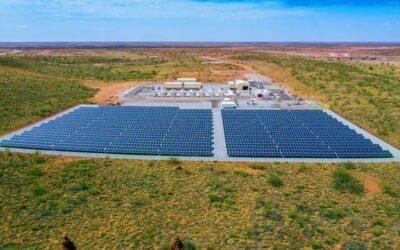Hard wired: incorporating the technology into existing business models for the network will pose more of a challenge as deployment figures rise. Image: ASD Sonnenspeicher.
An influential German think tank and a national energy storage industry association have both said that long-term solutions need to be found for residential solar-plus-storage owners’ part-time reliance on the grid.
Energy-Storage.News spoke with Christoph Podewils, director of communications for Agora Energiewende, a think tank that once had Rainer Baake, the country’s state secretary for economics and energy, as its director. The “independent and non-partisan” group was founded to support Germany’s ‘Energiwende’ (‘energy transition’) away from nuclear and fossil fuels. Agora has diverse stakeholders on its council, including grid operator 50Hz, utility MVV Energie, BDEW, a trade group for energy and water industries and the World Wildlife Fund.
Enjoy 12 months of exclusive analysis
- Regular insight and analysis of the industry’s biggest developments
- In-depth interviews with the industry’s leading figures
- Annual digital subscription to the PV Tech Power journal
- Discounts on Solar Media’s portfolio of events, in-person and virtual
Podewils said a difficult question faced by Germany in energy policy and market design is how to accommodate an increasing level of ‘autarchy’ or energy self-sufficiency that is enabled by behind-the-meter solar-plus-storage. Specifically, Podewils said, while households and communities with PV and batteries installed might significantly decrease the amount of power they needed to draw off the grid, achieving full autarchy is likely to be very rare and there would still be times when storage system owners needed to top-up their self-generated power.
“People with solar home storage are using the grid in less time of course but are still using the grid and grid capacity needs to be reserved at certain times for those people,” Podewils said.
The grid system in Germany is financed on an energy basis, charged for per kilowatt-hour drawn from it, while the infrastructure itself remains a fixed cost.
“So with using less electricity from the grid, the amount of money for the grid paid for by auto-consumers is decreasing while the fixed cost of the grid which could be allocated on those people, remain constant.”
Situation will be 'difficult' for grid operator
Podewils said that at the moment, the numbers of customer-sited storage systems are small enough, in the tens of thousands, that it is not yet a problem. He was at pains to stress that Agora does not want to prohibit people from installing the systems, especially from an environmental perspective, but that the problems must be dealt with “in a neutral way”. Agora previously and controversially said that it believes energy storage will not be neccessary from a network perspective until renewable energy penetration levels on the grid go close to 90%. The think tank has also said however that Germany's grid should be able to handle the addition of "huge amounts" of renewables including solar-plus-storage if consumers and businesses continue to choose the technologies.
At present, new business models around storage and trading power from battery systems, such as Sonnen’s SonnenCommunity concept, include paying the existing fixed grid fees.
Energy-Storage.News asked Miriam Hegner, policy expert at energy storage industry association BVES, for her organisation’s position on the matter. Hegner agreed that it was a big question and one that will need to be resolved.
“This is one [ongoing] discussion [in Germany], for sure. People have their own energy production but on some days, when there’s no sun or no wind they need power from the grid. There will be a problem because you maybe have to change the payment from a [fixed] grid fee, to maybe another system one day that works [better] because if everybody needs a little energy from the grid but only a little bit, then the current way of financing the grid wouldn’t work anymore.”
Hegner said BVES recognised that an unchecked increase in storage under the current system will present a challenge for grid operators. She said ultimately, it would be a question of improving forecasting and scheduling based on weather reports and other data, as well as perhaps redesigning market and payment mechanisms.
“I think the system will change in a way, but I don’t know in which way. For sure, it’s a problem, for the grid operator, it’s difficult. So prediction is one point and also maybe another way of payment, because if I only need energy from the grid operator sometimes, only for the kilowattstunde (by the kilowatt-hour), for the grid operator it’s economically not feasible anymore.”
Former Agora director Rainer Baake is now secretary of state for Germany's ministry of economy and energy. Image: Flickr user: Heinrich-Boll Stiftung.






